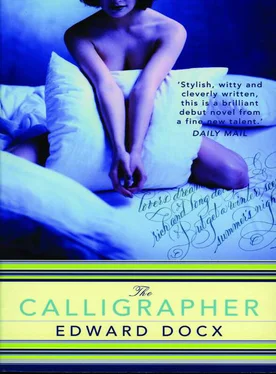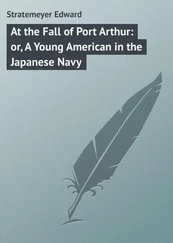On the face of it, Donne, the young man about town, Master of the Revels at Lincoln’s Inn, seems to be striding robustly through his lines, booting the sanctimonious aside with a ribald rhythm and easy rhyme, on his way to wherever the next assignation happens to be. But actually, that’s not the point of the poem. That’s not what ‘Confined Love’ is about at all.
Take heed of loving me,
At least remember, I forbade it thee;
Some introductions. My name, as you may have gathered, is Jasper Jackson. I am twenty-nine years old. And I am a calligrapher.
My birthday, 9 thMarch, falls exactly midway between Valentine’s Day and April Fool’s – except when there’s a leap year, when it comes closer to the latter.
What else? I am an orphan. I have no recollection of the day itself but it would appear that my father, the young and dashing George Jackson, wrapped both himself and my mother, Elizabeth, around a Devon tree while trying to defeat his friends in their start-of-the-holiday motor race from Paddington to Penzance. My mother did not die straightaway but I was never taken to visit her in hospital.
From the age of four onwards (and very luckily for me), my upbringing and education was placed in the hands of Grace Jackson, my father’s mother, at whose Oxford home I was staying when news of the accident arrived. In a way, therefore, my entire life can be viewed as one long, extended holiday at my grandmother’s. And I am pleased to report that I can recall nothing but happiness from my early years. Even the reprimands I remember only with affection.
It is a hot summer afternoon. The whole town is wearing shorts or less. My grandmother and I stand contentedly in the grocer’s queue. We are buying black cherries – a special treat – as a prelude to our usual Saturday afternoon tea. (Grandmother has a fondness for scones on Saturdays.) I am holding the fruit in a brown paper bag, waiting to hand them up to be weighed. My movements go unnoticed because I am living at waist height (oh, happy days). I glance around. I see a red-haired girl about my age passing by the vegetable stands outside. One hand is holding her mother’s and the other is clutching the sticky stick of an orange iced-lollipop, which is cocked at a dangerous angle and visibly melting as she half-skips along.
I move without thinking. Still carrying the cherries, in a second I am out of the shop and on to the street. I turn one corner, then another. For the first time in my life – with exaggerated care – I cross a main road alone. There is a cry behind me – my grandmother. Then comes a shout – a man from the shop running along the pavement after me. The girl turns, wrist pivoting on her mother’s arm; the ice slides clean off and drops to the pavement. My sweetheart registers the disaster for a long moment, then her grey eyes come slowly up and look directly into mine. I too am visibly melting. I am five or maybe six.
But scolding was never my grandmother’s strong suit. Rather, she believed in punishment by improvement. (Perhaps this was because we had, between us, lost too many relatives to waste time being cross with each other: my grandfather had died suddenly, while in Cairo on business just after the Suez crisis.) So once we had returned the cherries, there were a few serious words – ‘Jasper, you cannot go anywhere by yourself until you are twelve, do you understand?’ – and then it was off to the library with me for a miserable afternoon indoors. Which was a blow because I had been planning to play on, my bike with Douglas Wilson from down the road.
I say miserable, but actually the library in question was beautiful, the most beautiful in Britain. Although, due to the war. Grandmother never finished her post-graduate work (something to do with medieval French), Somerville College felt that she was far too clever a scholar to lose. And when she returned from Egypt with my father still a boy and a pitiful widow’s pension, they quickly made her deputy librarian. By the time I arrived on the scene, two decades later, she had become an authority on late medieval manuscripts at the glorious Bodleian, a building in which, I maintain, it is impossible to be anything but enthralled – even when, ostensibly, one is being punished.
Between the ages of four and twelve years, I must have spent more time in the Bodleian than most academics manage in their entire lives. Often during the school holidays (although rarely on Saturdays) my grandmother would sit me down at the table near the reference section that was reserved for members of staff, and bring me a book to read. ‘It didn’t seem to do your father any good in the long run, Jasper,’ she once said, ‘but at least he knew a few things before he died, which is all we can any of us really hope for.’
Evidently, my grandmother was following exactly the same method of combining childcare with a career that she had when bringing up my father; and, like him, I think I became something of a mascot among the librarians, many of whom used to mind me on odd days when Grandmother had to go and give a lecture somewhere or there was a serious section count going on. Indeed, over the years, just about anybody who was anyone at the university came to know me. People would stop by to say hello on their way in or out, and ask me what I was reading, and sometimes (as in the case of Professor Williams, Grandmother’s friend) take me down to the canteen for lunch, and even bring me presents (which, at Christmas, I used to have to hide to avoid giving the impression that I was getting too many).
If, however, I was in need of ‘improving’, as was the case on the afternoon of the cherries, my grandmother would sit me down and, instead of giving me a book, place a large illuminated manuscript before me. She would then provide me with a range of sharpened pencils and some stiff paper and instruct me to copy out an entire page – ‘as exactly as you can, please, Jasper, I want your letters to look just like those. No noise. No trouble. Come and find me when you have finished.’
Secretly, I loved the task, but I had to pretend otherwise in case Grandmother realized and changed my punishment to something awful like washing cars, which is what Douglas had to do when he was in trouble.
The fateful cherry-day page was in Latin of course, but I remember asking one of the Saturday assistants what it was about and he told me it was a prayer written in 1206 by a monk, who was hiding in the Sierra Norte above old Seville, asking God to deliver him from the women in his dreams.
My grandmother and I decided we should stay in Oxford until I was twelve. Then we moved to Avignon, where she had been offered a job cataloguing some of the exquisite work left behind by the scribes who lived there during the hundred years of papal occupation until 1409. I attended a lycée while she worked in the Livree Ceccano, the municipal library, which was housed in what had originally been one of the many sumptuous palaces built by the cardinals who came to take up expedient residence near their pontiff.
In two years her task was complete and our next destination was the German university town of Heidelberg, where she led a restoration programme, which brought some of the earliest Reformation documents back to light.
‘Finally the boss, eh, Jasper – at sixty-three,’ she said. ‘Who says that women are held back in this clever old world of ours? And all because I bothered to learn German in the war.’
I never noticed how much money my grandmother had, which suggests she had enough, but we were by no means well off – a librarian’s salary is thin, even at the best of times. Nor is restoration exactly lucrative. I seem to remember that we spent a lot of time waiting for buses and persuading one another that second-hand clothes lent a person an air of bohemian charm unavailable to those lesser folk whose imaginations could not travel beyond the high street.
Читать дальше












